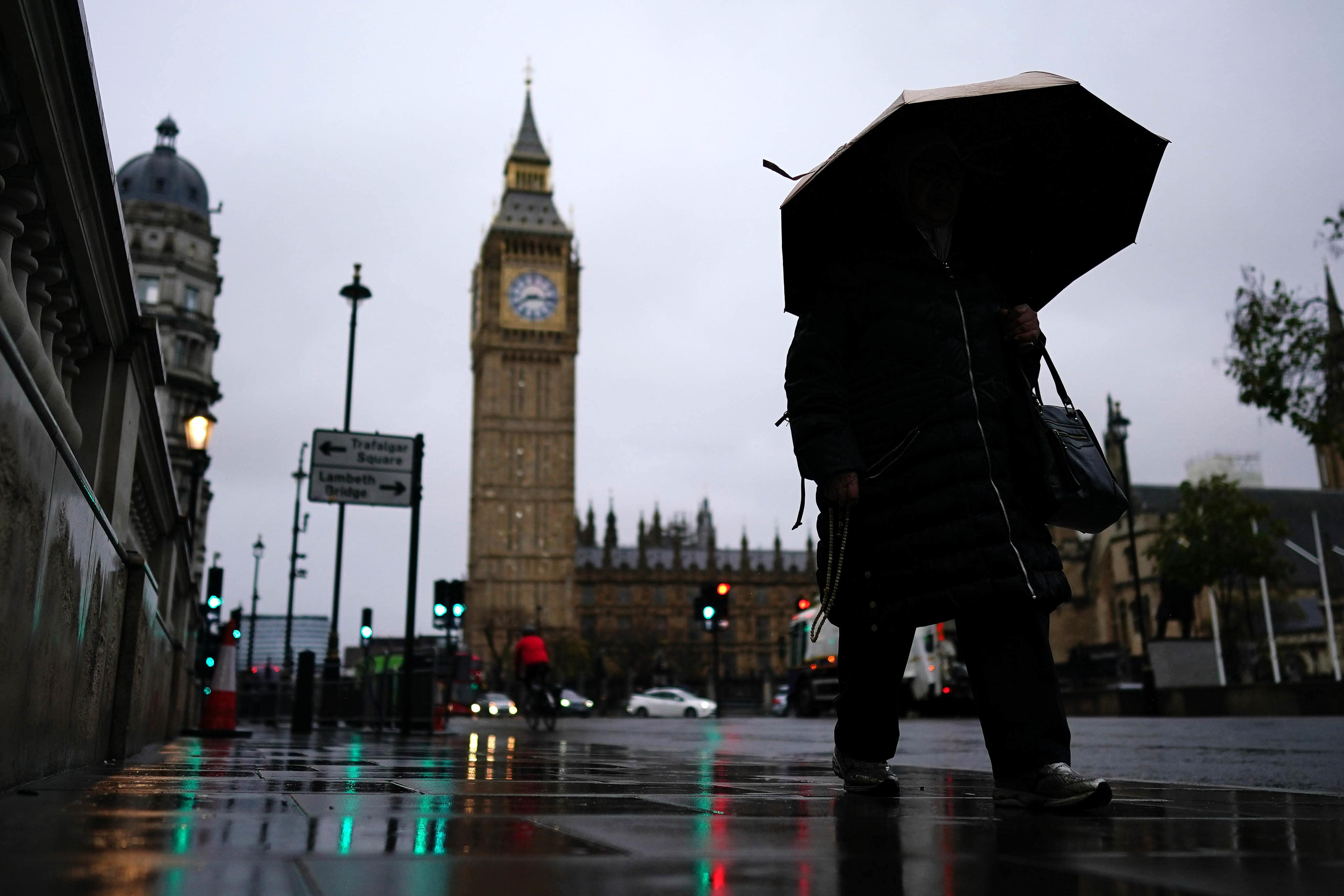UK economy shows no growth in April, in blow to Rishi Sunak
Gross domestic product flatlined as unusually rainy weather over the spring month curtailed economic activity.

Your support helps us to tell the story
From reproductive rights to climate change to Big Tech, The Independent is on the ground when the story is developing. Whether it's investigating the financials of Elon Musk's pro-Trump PAC or producing our latest documentary, 'The A Word', which shines a light on the American women fighting for reproductive rights, we know how important it is to parse out the facts from the messaging.
At such a critical moment in US history, we need reporters on the ground. Your donation allows us to keep sending journalists to speak to both sides of the story.
The Independent is trusted by Americans across the entire political spectrum. And unlike many other quality news outlets, we choose not to lock Americans out of our reporting and analysis with paywalls. We believe quality journalism should be available to everyone, paid for by those who can afford it.
Your support makes all the difference.The UK economy recorded no growth in April after wet weather dampened consumer spending, according to the Office for National Statistics, in a setback for Prime Minister Rishi Sunak.
Gross domestic product (GDP) was flat during the month, following growth of 0.4% in March, the ONS said. The figure was in line with economists’ expectations.
The figures present a headache for Mr Sunak, who has pegged much of his General Election campaign on a recent record of an economic bounceback under his Conservative Government.
The sluggish momentum follows an estimated 0.6% GDP growth in the first quarter of 2024, pulling the UK out of a small recession at the end of last year.
It also comes just over a week before the Bank of England makes its next decision on interest rates.
Experts have predicted the Monetary Policy Committee is unlikely to lower interest rates without further progress on inflation and a cooling in the labour market.
Rob Wood, chief UK economist at Pantheon Macroeconomics, said: “These growth data further complicate the MPC’s upcoming interest rate decisions. Rate-setters will keep rates on hold in June, but now a cut in August looks a little less likely.”
On a quarterly basis, real GDP is estimated to have grown by 0.7% in the three months to April, compared with the three months to January 2024.
Luke Bartholomew, deputy chief economist at asset management giant abrdn, said monthly GDP data can be volatile, urging people to “look at the broader trend across several months”.
He added: “And on that measure, a picture of solid recovery from last year’s recession emerges. This should continue as the year progresses as households benefit from strong real income growth amid falling inflation.”
Services output grew by 0.2% in April, the fourth consecutive month of growth, while production output fell by 0.9% in April following growth of 0.2% in March.
Construction output was down by 1.4% in April, its third consecutive monthly fall.
Rishi Sunak claims we have turned a corner, but the economy has stalled and there is no growth
Shadow chancellor Rachel Reeves said: “Rishi Sunak claims we have turned a corner, but the economy has stalled and there is no growth.
“These figures expose the damage done after 14 years of Conservative chaos.”
Liberal Democrat Treasury spokeswoman Sarah Olney said the lack of growth in April showed the Tories have “utterly failed” to deliver on their promises.
“As Rishi Sunak’s time as Prime Minister peters out, so does the UK’s economic growth,” she said.
There is more to do, but the economy is turning a corner and inflation is back down to normal
Chancellor of the Exchequer Jeremy Hunt said: “There is more to do, but the economy is turning a corner and inflation is back down to normal.”
He added that the Conservatives would “keep the economy growing with our clear plan to cut taxes on work, homes and pensions”.
Peter Arnold, chief UK economist at consultants EY, said: “Monthly GDP data can be noisy and the focus placed upon individual outturns should therefore be measured.
“Indeed, after three strong month-on-month gains, it was always likely that there would be some payback in April, and a flat outturn beat our expectations.
“Looking through this volatility, we expect GDP to grow at a decent pace in Q2. The drag on some sectors from an early Easter should unwind in May.”
Despite these disappointing GDP figures, a June interest rate cut looks improbable, with the Bank of England likely to be a little wary of shifting policy in the middle of a General Election campaign
Suren Thiru, economics director at the Institute of Chartered Accountants in England and Wales, said: “Despite these disappointing GDP figures, a June interest rate cut looks improbable, with the Bank of England likely to be a little wary of shifting policy in the middle of a General Election campaign.”
Nicholas Hyett, investment manager at Wealth Club, said: “The market had low expectations for the UK economy in April, and it duly delivered.
“In an election month, where every data release will be being watched closely, there’s little here to change the narrative.”